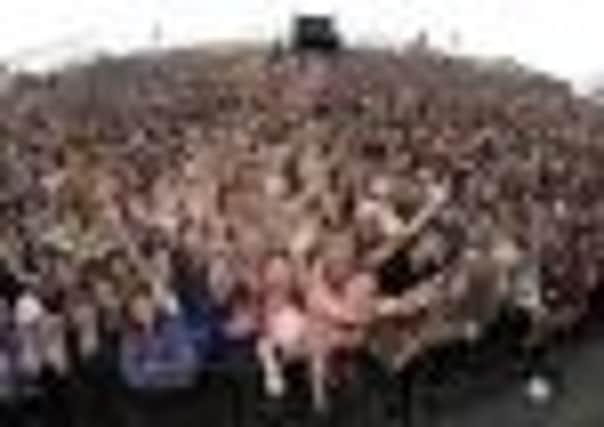Brian Ferguson: Long live Scotland’s music festivals


It is bad enough realising that a good proportion of those heading to the event this year were not even born in 1994, when the event was first staged.
But I would have been a mere youngster of 21 when I took the bus a few miles from my home town to Strathclyde Country Park in Hamilton for what was then a virtually new concept in Scotland.
Advertisement
Hide AdAdvertisement
Hide AdBig stadium concerts were, of course, pretty commonplace by the early 1990s, when I was lucky enough to see both Prince and U2 at Celtic Park. Murrayfield, Meadowbank and Edinburgh Castle at the other end of the M8 were also hosting gigs by then.
But the closest thing to T in the Park had been Runrig’s iconic parkland gig on the banks of Loch Lomond three years previously and the all-day music extravaganza staged in Glasgow at the height of its reign as European Capital of Culture in 1990.
By 1994, not only had the popularity of many big Scottish bands who graced that latter event – like Deacon Blue, Hue & Cry, Texas and Big Country – gradually waned, but a new breed of British bands were on the rise.
It is intriguing looking back at the bold talk from T’s promoters pitching the event as a Scottish Glastonbury. It had been well over a decade since the last open-air rock festival in Scotland had been staged - and that event at Ingliston, in Edinburgh, was ruined by dreadful weather.
That first T in the Park was not – despite the substantial hype around the event – a financial success, with thousands of tickets left unsold.
Yet the quality of the line-up, the response from the crowds and the critical acclaim was such there never seemed any doubt it would be repeated.
For years after that first T in the Park, I was still beating myself up for missing that very first day, when Blur, Pulp and the Manic Street Preachers all graced the circus tent that passed for the second stage.
But I can recall being bowled over by the atmosphere that greeted Oasis, Crowded House and Primal Scream the following day.
Advertisement
Hide AdAdvertisement
Hide AdI never missed a day for years afterwards, and T in the Park was ringed off in the diary as a “must-do” each summer.
Looking back, 2001 was the last time I went to T in the Park, and the line-up gives a bit of a clue to why I found it all a bit uninspiring. Stereophonics, David Gray, Coldplay and Paul Weller just didn’t do it for me, and the site had become too vast to enjoy trekking around to see some of the lesser known acts.
By then I was attending a plethora of other summer events, which didn’t have the same aura of endurance around them.
Perhaps the biggest legacy of T in the Park – alongside the huge platform it has offered Scottish bands over the years – was the way it helped encourage a whole series of these other festivals around the country.
Some – like Wickerman, Belladrum, RockNess, HebCelt and Loopallu – are now firmly entrenched in the calendar. And almost every corner of the country has some form of festival.
Yet despite the huge growth in such events, T in the Park’s popularity appears as strong as ever.
Within hours of this column appearing, the thousands of ticketholders who have already booked up for this year’s T in the Park will have a pretty good idea what they have forked out for.
It’s been fun watching the online reaction as some of the headliners have been revealed over recent months – for every howl of anguish that has greeted the prospect of Rihanna topping the bill, there is a cry of ecstasy.
Advertisement
Hide AdAdvertisement
Hide AdThe announcement that German electro-pop pioneers Kraftwerk have been snapped up saw the same scenario unfold.
Yet for many of those who go T in the Park, and indeed the other well-established festivals named above, it is about much more than a procession of bands.
They have become such defining social occasions of Scotland’s summer that their devotees now view them as simply unmissable.
Long may they continue.